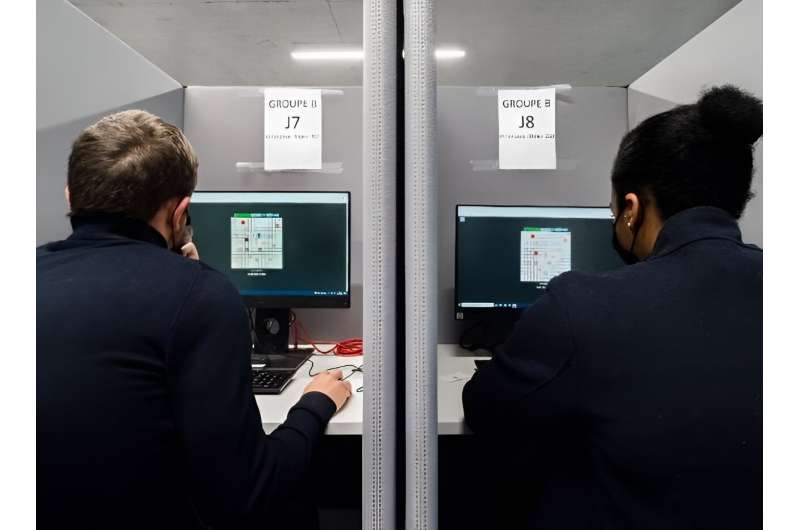Image of the web interface used by the participants during the experiment. Credit: David Villa/ScienceImage/CBI/CNRS
As social animals, humans communicate with and influence one another by leaving digital traces on the Internet, particularly by using star rating systems on collaborative platforms. Many e-commerce sites use this technique to allow users to share their hotel or restaurant experiences, for example. But under what conditions can these traces enable a group to cooperate, and can we trust them?
In order to analyze the behavior of humans confronted with this type of system, a team of scientists from the CNRS, Université Toulouse III—Paul Sabatier and the Toulouse School of Economics have developed a web application that reproduces these rating mechanisms and enables them to be studied in controlled conditions. Two conditions were tested for this study.
The first rewarded participants equally, with the subjects adopting a predominantly collaborative behavior that enabled them to succeed individually, thanks to information contained in the traces left by the other group members. Conversely, in the competitive environment, the participants primarily adopted a neutral and deceptive behavior, favoring the sharing of unreliable information. The study, published in the Proceedings of the National Academy of Sciences on October 10, highlights the conditions that enable humans to develop collective intelligence.
More information: Thomas Bassanetti et al, Cooperation and deception through stigmergic interactions in human groups, Proceedings of the National Academy of Sciences (2023). DOI: 10.1073/pnas.2307880120
Journal information: Proceedings of the National Academy of Sciences
Provided by CNRS
























